Wall Street Lingo
Thousands of Investment Terms Explained Simply
By Nora Peterson

A few years back we lost our beloved pet dog Bear, who was not only our best and dearest friend but also the Vice President of Sunshine here at Atlantic Publishing. He did not receive a salary but worked tirelessly 24 hours a day to please his parents.
Bear was a rescue dog who turned around and showered myself, my wife, Sherri, his grandparents Jean, Bob, and Nancy, and every person and animal he met (well, maybe not rabbits) with friendship and love. He made a lot of people smile every day.
We wanted you to know a portion of the profits of this book will be donated in Bears memory to local animal shelters, parks, conservation organizations, and other individuals and nonprofit organizations in need of assistance.
Douglas and Sherri Brown
PS: We have since adopted two more rescue dogs: first Scout, and the following year, Ginger. They were both mixed golden retrievers who needed a home.
Want to help animals and the world? Here are a dozen easy suggestions you and your family can implement today:
- Adopt and rescue a pet from a local shelter.
- Support local and no-kill animal shelters.
- Plant a tree to honor someone you love.
- Be a developer put up some birdhouses.
- Buy live, potted Christmas trees and replant them.
- Make sure you spend time with your animals each day.
- Save natural resources by recycling and buying recycled products.
- Drink tap water, or filter your own water at home.
- Whenever possible, limit your use of or do not use pesticides.
- If you eat seafood, make sustainable choices.
- Support your local farmers market.
- Get outside. Visit a park, volunteer, walk your dog, or ride your bike.
Five years ago, Atlantic Publishing signed the Green Press Initiative. These guidelines promote environmentally friendly practices, such as using recycled stock and vegetable-based inks, avoiding waste, choosing energy-efficient resources, and promoting a no-pulping policy. We now use 100-percent recycled stock on all our books. The results: in one year, switching to post-consumer recycled stock saved 24 mature trees, 5,000 gallons of water, the equivalent of the total energy used for one home in a year, and the equivalent of the greenhouse gases from one car driven for a year.
Foreword
W eve decided to create a poison pill! If stated by an evil scientist in a pharmaceutical lab, everyone would immediately understand the implications of this statement. However, if spoken by the CEO of a retail firm, many people might not understand its implications though they would probably guess that no one should die as a result!
Many professions employ language that is understood only by those who practice it, and the finance profession is no exception. Like other professionals, those in finance developed their own lingo as a means of conveying ideas succinctly. Unfortunately, this language can serve as an initial barrier to those interested in learning more about the economy and our financial markets.
With the eclipse of defined benefit retirement plans individuals are increasingly in control of their own investments. In turn, as more people desire a greater awareness and understanding of financial market products and trading mechanisms, more are increasingly confronted by the barrier created by finance lingo.
Wall Street Lingo is an excellent dictionary through which everyone can learn the language used by finance professionals. The book is an ideal reference for people who want to gain a deeper understanding of finance from outlets ranging from The Wall Street Journal to CNNfn broadcasts. This books greatest appeal is derived from its organization. The unique arrangement by subject area will help readers link related concepts; thus providing context for the words in addition to their literal meaning. Therefore, from the novice trying to understand the difference between the NYSE and an ECN, to those considering the implications of investing in a firm with a poison pill , everyone will find this book to be helpful and stimulating.
Jay F. Coughenour
Jay Coughenour is an Associate Professor of Finance at the University of Delaware, Lerner College of Business & Economics. Professor Coughenours research has been presented at the National Bureau of Economic Research, the New York Stock Exchange, the Securities and Exchange Commission, and at over 35 academic conferences or seminar programs. Professor Coughenour has published in the Journal of Finance, Journal of Financial Economics, Journal of Derivatives, and The Financial Review ; additionally his research has been cited in the CFA Digest, Dow Jones Newswires , and The Wall Street Journal .
A u t hor De d i c ation
To my husband, Vic. You showed me the possibilities.
Introduction
Wall Street
1.A street in New York City bounded by Broadway on the northwest and South Street on the southeast.
2.The address for the largest stock exchange in the world.
3.A reference to the banks, stock exchanges, and commodities markets in New York Citys financial district.
4.The financial capitol of the world.
What happens on Wall Street does not stay on Wall Street. In fact, its been said that if the U.S. economy catches a cold, the rest of the worlds economies get the flu. Intels earnings matter as much on the street of New Delhi and Brussels as they do in mid-town Manhattan. And they matter where you and I work, shop, and playright here on Main Street, U.S.A.
In a country where capitalism is king and free enterprise his queen, jobs depend on corporate profitability: our jobs. The cereal boxes above the refrigerator, the bananas dangling on a hook on the kitchen counter, the running shoes under the bed, the gasoline we pump into the SUV and the ready-made dinner we pick up on the way home from work all make their way into our lives because companies see an opportunity to make a profit by providing them.
Bringing products to our doorsteps also requires people like you and me to design, produce, market, and deliver them. Jobs mean paychecks. Paychecks empower consumers. Robust consumer spending ultimately translates into more profits for corporate America. But what about you and me?
Paychecks rarely pave the road to financial freedom. Its what we do with the money we pay ourselves (our savings) that sets us on one of the many different paths to that destination. Thats where Wall Street Lingo enters the picture and hopefully your life.
Of course, not everyone is wired for building wealth by aggressively investing in securities or buying and selling oil and gas futures or index options. That said, experience has convinced me that more people could be shoring up their financial security by incorporating them to some degree into their overall financial plan if they could simply get over the intimidation hump. Im well acquainted with how formidable the foreign world of Wall Street can appear because I started my journey from the very same square.
Overcoming the language barrier is always a good place to begin when embarking on a journey to a new land. Learning the language of finance is much the same except that it might be a tad easier than becoming fluent in a completely unfamiliar tongue. It is based on English after all. Think of it as English in a different context. Heres a short example.
Consider the word leg , which has a number of different meanings when were bellied up to the dining room table for Thanksgiving dinner.


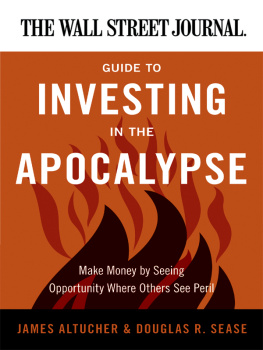
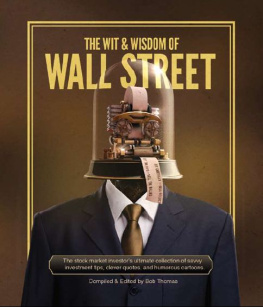
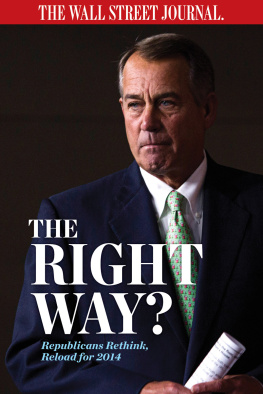
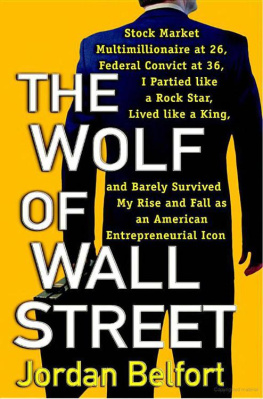
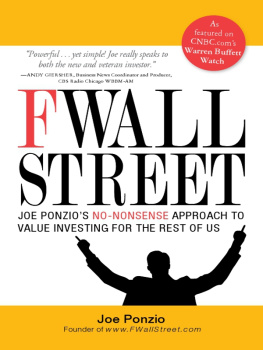

_fmt.jpeg)
